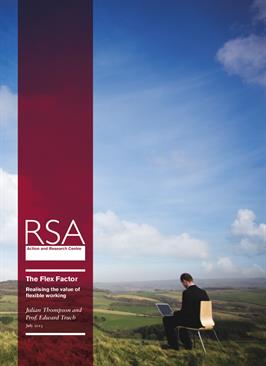Drawing upon a survey of UK employees and management, we have devised a 'Flexibility Index' to capture the value of flexible working practices. This reveals strong links between flexibility and overall performance, innovative capacity and skills utilisation, as well as employee wellbeing and satisfaction.
The report also draws on employment forecasts to argue for a strengthened 'psychological contract' between employers and employees, and a renewed commitment to experimenting with novel working arrangements that better fit the reality of 21st century working lives.
Our research reveals that:
-
The majority (77 percent) of UK employees work in organisations that provide some kind of flexible working. The most common types are home working and flexi-time
-
The voluntary sector leads the private and public sector in terms of adoption
-
Half of employees work in organisations with formalised flexible practices
-
Attitudes are broadly in favour of adoption
-
However there are also concerns about its potential downsides and managers are often passive or ambivalent
-
Organisations are investing in ICT hardware and software to provide a more flexible infrastructure, but it remains a significant barrier to greater adoption
-
Organisations fall into four segments in terms of the extent and nature of their flexible working practices: Culture-driven; Technology-focused; Follower; and Non-adopter
-
Employees fall into five segments, from Advocate to Sceptic
-
Understanding the specific organisational and employee context through diagnostic research is key to developing a bespoke organisational approach to flexible working
pdf 1.6 MB
Contributors


